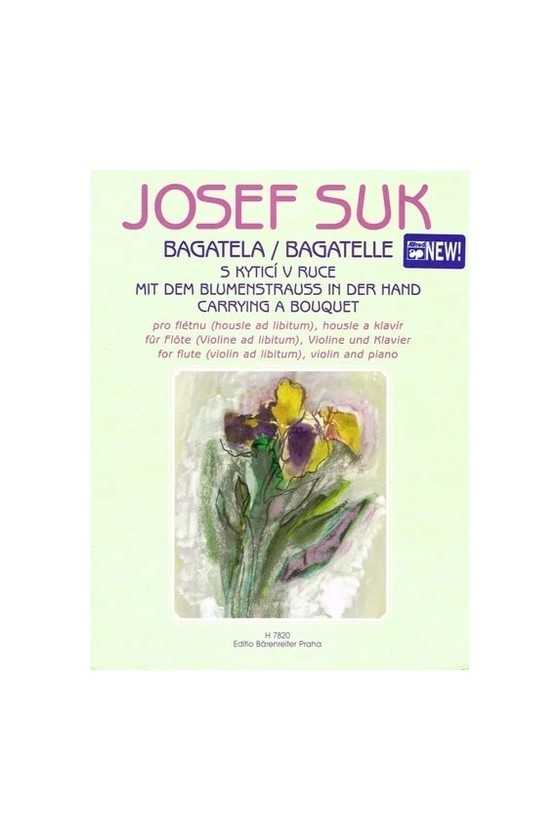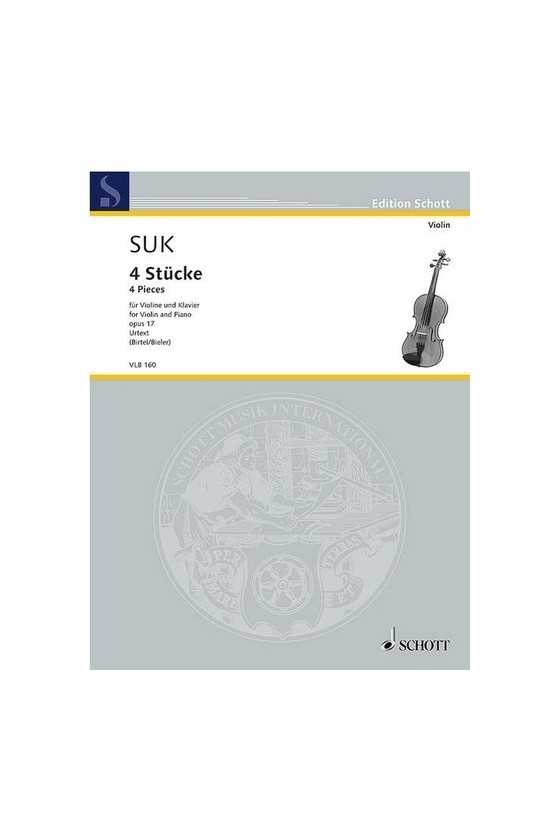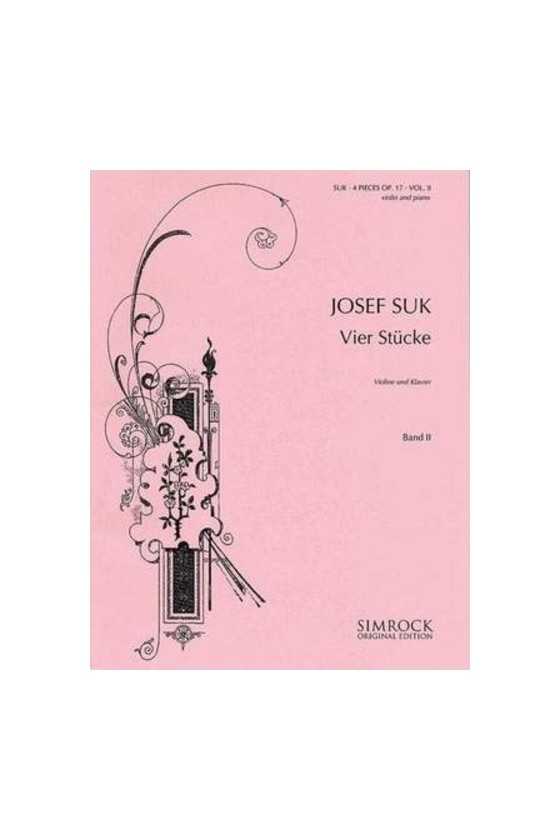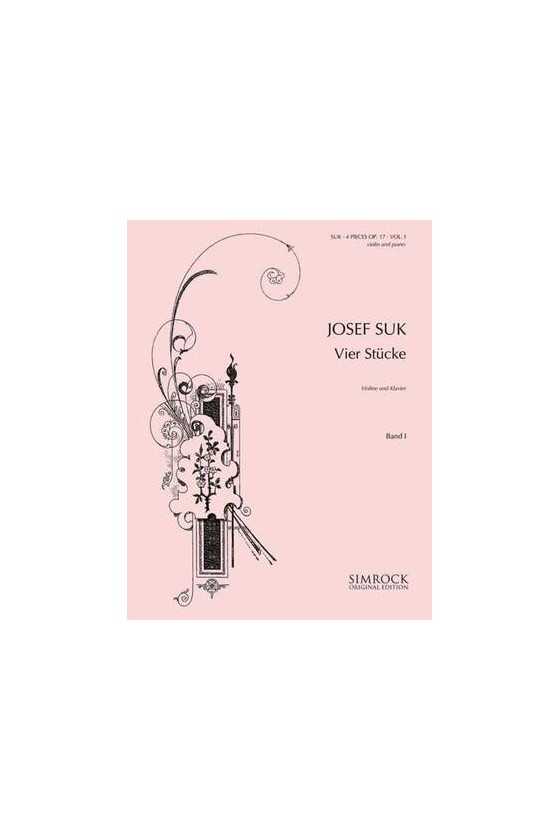Suk , Josef
Josef Suk, a prominent figure in classical music, was a highly skilled violinist and composer from Czechoslovakia. Born on January 4, 1874, in Keovice, Bohemia, Suk's musical journey began at an early age. His father, Josef Suk Sr., an organist and composer, played a significant role in nurturing his talent. Under the guidance of his father, Suk received training in playing the organ, violin, and piano. Additionally, he had the privilege of learning the violin from Czech violinist Antonn Bennewitz.
Suk's passion for music continued to grow, and he sought further education and mentorship from renowned composers and musicians. Notable figures such as Josef Bohuslav Foerster, Karel Knittel, and Karel Stecker supported Suk's theoretical studies. However, it was his association with Czech composer Antonin Dvoák that had a profound impact on his musical development.
Early Education and Mentorship
Suk's musical journey began with his father as his first teacher. He received training in playing the organ, violin, and piano, showcasing his natural aptitude for music. However, his father's guidance was not the only influence on his musical development. Suk also had the opportunity to learn from Czech violinist Antonn Bennewitz, further honing his violin skills.
As Suk progressed in his musical journey, he sought formal education and mentorship from renowned composers. He studied music theory under the guidance of composers Josef Bohuslav Foerster, Karel Knittel, and Karel Stecker. Their expertise and mentorship played a vital role in shaping Suk's understanding of music and composition.
A Profound Connection with Antonn Dvoák
One of the most significant influences on Suk's musical career was his association with Czech composer Antonin Dvoák. Dvoák recognized Suk's talent and became his teacher, mentor, and personal friend. The profound connection between the two can be seen in Suk's marriage to Dvoák's daughter, Ottilie, in 1898.
The marriage to Ottilie marked a period of joy and musical inspiration for Suk. He found great support and encouragement from Dvoák, which fueled his creativity and led to the composition of some of his best works. However, tragedy struck Suk's life when both Dvoák and Ottilie passed away within a short period, leaving him devastated.
Asrael Symphony: A Tribute to Tragedy
The untimely deaths of Dvoák and Ottilie had a profound impact on Suk's emotional state and artistic expression. To cope with his grief, he composed the Asrael Symphony, a tribute to the tragic losses he endured. The symphony, completed in 1906, reflects Suk's deep emotions and serves as a testament to his ability to translate personal experiences into musical compositions.
Contributions to Czech Modernism
Suk's musical contributions extend beyond his compositions. Alongside renowned composers Vitezslav Novak and Austria, Suk is regarded as one of the most influential figures in Czech Modernism. His association with Antonn Dvoák, a prominent Czech composer, significantly influenced his artistic style and approach to composition.
Suk's talent and musical prowess gained recognition in Czech circles and internationally. During his time with the Czech Quartet, notable composers such as Johannes Brahms and critic Eduard Hanslick acknowledged his work. His compositions also caught the attention of renowned Austrian composers like Gustav Mahler and Alban Berg.
Exploring Various Genres
Although Suk predominantly focused on instrumental music, he occasionally explored other musical genres. His versatility as a composer allowed him to dabble in different styles, showcasing his creativity and adaptability. While orchestral music remained his forte, Suk's exploration of various genres contributed to the diversity of his musical repertoire.
One of Suk's notable compositions is the Serenade for Strings, Op. 6, completed in 1892. This orchestral piece highlights his mastery of composition and ability to create captivating melodies. The Serenade for Strings showcases Suk's unique musical language and skill in orchestrating intricate harmonies.
Challenges and Controversies
Despite his musical achievements, Suk faced challenges and controversies throughout his career. While with the Czech Quartet, he encountered criticism and backlash, particularly directed at the quartet's association with Dvoák. Zdenek Nejedl, a communist critic, accused the Czech Quartet of performing illegally in Czech countries, which negatively impacted Suk's spirits.
Despite these challenges, Suk remained resilient and continued to create exceptional music. His dedication to his craft and unwavering passion for music allowed him to overcome obstacles and leave a lasting legacy in classical music.
Legacy and Influence
Josef Suk's contributions to the world of classical music continue to resonate even after his passing. His compositions, characterized by their emotional depth and melodic beauty, have captured the hearts of audiences worldwide. Suk's ability to convey profound emotions through his music solidifies his status as a masterful composer.
Furthermore, Suk's influence on Czech Modernism and his association with Antonn Dvoák have left an indelible mark on the musical landscape. His compositions have inspired generations of musicians and continue to be celebrated for their artistic brilliance.
Conclusion
Josef Suk's life and musical journey exemplify the power of passion, mentorship, and resilience. From his early education under the guidance of his father to his association with Antonn Dvoák, Suk's talent and dedication propelled him to become a renowned violinist and composer. Despite facing personal tragedies and professional challenges, Suk's musical legacy inspires and captivates audiences worldwide. His contributions to Czech Modernism and his ability to convey deep emotions through his compositions solidify his position as one of the greats in classical music.
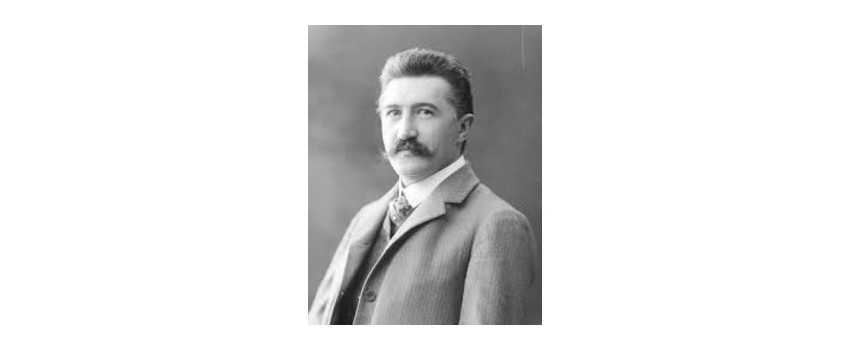
Suk Bagatelle 'Carrying A Bouquet' For Violin
Suk Bagatelle 'Carrying a Bouquet' for Violin
Suk, 4 Pieces For Violin And Piano Op17 (Schott)
Suk, 4 Pieces for Violin and Piano op17 (Schott)


